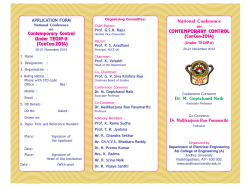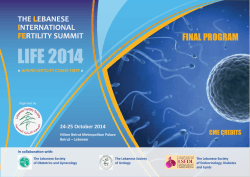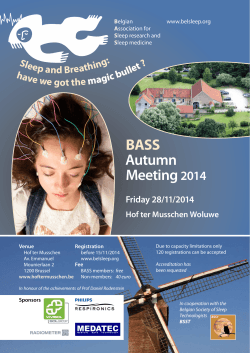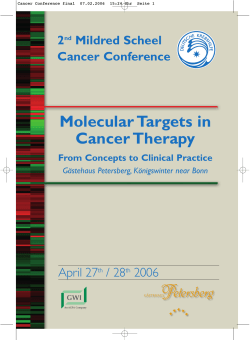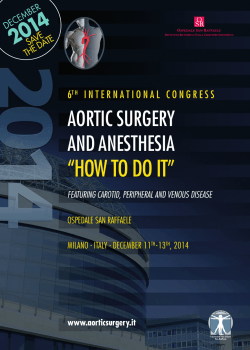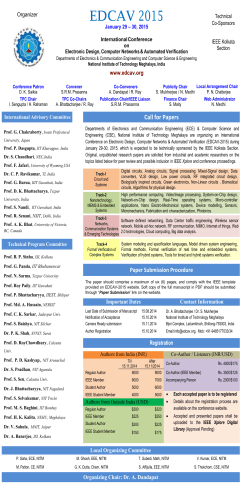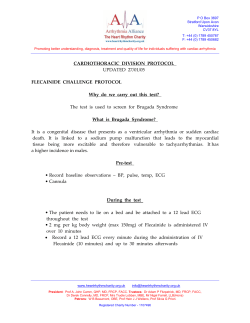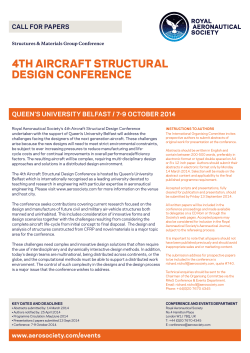
静岡大学大学院自然科学系教育部
平成 26 年度 静岡大学大学院自然科学系教育部 (創造科学技術大学院) 創造科学技術大学院) (後期3 後期3年博士課程) 年博士課程) 学 生 募 集 要 項 2014 GUIDELINES FOR APPLICATION TO DOCTORAL DEGREE PROGRAMS IN THE GRADUATE SCHOOL OF SCIENCE AND TECHNOLOGY Additional Admission 一般入試 社会人入試 外国人留学生入試 GENERAL SELECTION SELECTION FOR WORKING STUDENTS SELECTION FOR FOREIGN STUDENTS 国立大学法人 静 岡 大 学 GRADUATE SCHOOL OF SCIENCE AND TECHNOLOGY SHIZUOKA UNIVERSITY SHIZUOKA, JAPAN Vision Freedom and enlightenment. Creation of the future. By promoting the highest standard of education and creative research, Shizuoka University makes a difference and makes its presence felt in close collaboration with local communities and society at large. For a detailed overview of our commitment and vision for the future, refer to Shizuoka University's PDF-format brochure and statement http://www.shizuoka.ac.jp/rinen/vision_policy.pdf. Mission 1.Teaching for the future: Shizuoka University will provide students with in-depth knowledge that meets world-class standards so that they can become responsible citizens of tomorrow who are prepared to meet complex international challenges with an indefatigable spirit and concern for all humanity. 2.Commitment to research Shizuoka University strives to contribute to worldwide peace and human happiness through the pursuit of excellence in humanities and biological and physical sciences. 3.Contribution to the local community Shizuoka University recognizes the importance of a strong bond to the local community and will explore innovative methods of becoming an indispensable resource in reinventing community life. 1 Admissions Policy of the Graduate School of Science and Technology, Educational Division Shaping our students We train high-tech engineers and researchers who learn in-depth knowledge of specialized disciplines and obtain a broad-based education that enables them to meet the needs and expectations of the community and international society. Educational objectives The graduate school provides a T-style of education in which specialized courses and courses in relevant new emerging areas (the vertical bar of the T) are combined with broad-ranging general courses enabling students to better contribute and meet the needs of society (the cross bar of the T), while nurturing individuals who exhibit creative energy, self solving ability, and communication skills. Type of students we are looking for The graduate school is looking to admit students who are passionately committed to the pursuit of new knowledge and truth in the natural sciences, who never give up and are self-motivated and challenged to take on tough issues, and who demonstrate leadership coupled with a cooperative spirit in dealing with all kinds of situations. Nature, capability needed for entrance Qualified candidates for the Graduate School of Science and Technology, Education Division are those who have completed or are expected to complete a Master’s Degree or a Professional Degree, and those who are recognized as having a scholastic aptitude equal to or higher than a Master’s degree. In the selection examination for general, working, and foreign students, applicants are given an achievement test and an oral exam relevant to the presentation of the Master’s thesis or research record, as well as those related to basic subjects of the applicant’s major in a previously-completed graduate course. Through this selection process, the applicants are assessed for their ability to carry out the study and research in the Doctoral course. The graduate school is looking to admit students(1) who are passionately committed to the pursuit of new knowledge and truth in the natural sciences, (2) who never give up and are self-motivated to take on tough issues, and (3) who demonstrate leadership coupled with a cooperative spirit in dealing with various situations. Oral exams administered in the selection process are designed to evaluate the aforementioned personal qualities and aptitude as well as academic abilities required in doctoral study. 2 Student Admission Guide (April Admission, 2014) General Course, Course for Working Students, Course for Foreign Students 1. Admission Policy Department of Nanovision Technology A new research field will be created by uniting the engineers of image science and researchers of nano science. The nano field control of individual photon and electron will be introduced for the first time in the world in the image science, which will be called "Nanovision Science". The objective of creating this field will be to rear students so that they will be able to contribute strongly in the development of industries as engineers and researchers. They will be judged on the basis of their ability, academic achievement, suitability, etc. Department of Optoelectronics and Nanostructure Science The aim of the department is to develop your professional capabilities to innovate in future technologies and to take part in the initiative activities based on controlling of materials function and interaction between photons and nanostructure materials in the field of expanding industry such as communication, measurements and chemical industries thorough a knowledge of fundamental sciences and applying them to their practical purposes. The applicants are required to provide their ability, scholarship and aptitude for achieving the admission policy. Department of Information Science and Technology Department of Information Science and Technology aims based on informatics, engineering and basic sciences to educate specialized researchers who develop novel basic information technologies and advanced engineers of information systems with outstanding abilities of information techniques. Applicants are examined from the view point of academic abilities for the policy. Department of Environment and Energy System The application of basic principles and equations dealing with water, air, and solid and hazardous wastes; material and energy balances; and chemical and biogeochemical cycles for solving environmental issues. Topics include synthesis courses of water treatment, environmental change and biogeochemical cycles, analysis of ecosystems, geomicrobiology, CO2 sequestration, and environmental legislation. Our goal is new innovative science and technology, through lectures and discussions linking a broad range of scientific and engineering topics. Department of Biosciences The department provides education and training to the students by conducting frontier researches directed to basic bioscience and biotechnology, on the basis of cell biology, developmental biology, integrative biology, biophysics, microbiology, genomics, biotechnology, bioorganic chemistry, food science, and bioinformatics, being expected to take the initiative in the academic and scientific research leaders with entrepreneurship in the new bioindustrial areas. 3 2.Qualifications for Application (Requirements) (1) Persons who have completed a Master’s Degree or a Professional Degree. (2) Persons who are expected to complete a Master’s Degree or a Professional Degree by March 31, 2014. (3) Persons who have completed a Master’s Degree or a Professional Degree outside of Japan or those who are expected to complete one by March 31, 2014. (4) Persons who have studied in a correspondence course of a foreign school in Japan and have completed a Master’s Degree or a Degree equal to a Professional Degree or those who are expected to complete one by March 31, 2014. (5) Persons who have completed the course of a Master’s Degree or a Degree equal to a Professional Degree in Japan designed by the Ministry of Education, Culture, Sports, Science and Technology, Japan, such as a postgraduate course in a foreign country or those who are expected to complete one by March 31, 2014. The postgraduate course above must be from an educational institution recognized by the school education system in the country where it is located. (6) Persons who have qualifications approved by the Ministry of Education, Culture, Sports, Science and Technology of Japan (see Remark 2). (7) Persons who are recognized by our graduate school as having scholastic aptitude equal to or higher than that of a Master’s holder through an individual evaluation of admission qualification and who are over 24 years old by March 31, 2014. (Those who were born before April 1, 1990) (8) Person who completes course of the United Nations university established based on the United Nations general assembly resolution on December 11, 1972 that provides to Article 1 clause 2 of special measures law (No.72 of law in 1976) according to execution of agreement of association union and Japanese country concerning the United Nations university headquarters, and gives degree that corresponds to degree of master. (9) Persons who have passed the Qualifying Examination, or persons who have completed the curricula in a university abroad, have passed an examination equivalent to the Qualifying Examination, and are considered as having the academic aptitude equal to or higher than a Master’s Degree. (Remark 1) Applicants who intend to apply in accordance with Qualification (6) or (7) are required to submit to an Individual Evaluation of Application Qualification before submitting Application Documents for Admission. See “13. Individual Evaluation of Application Qualification” on page 8. (Remark 2) (the Ministry of Education Notification No.118) ① Persons who have graduated from a university in Japan and have experience working in universities or research institutions for more than two years and those who are recognized by our graduate school as having scholastic aptitude equal to or higher than that of a Master’s holder through an individual inspection of application qualification. ② Persons who have experience working in universities or research institutions for more than two years after completing 16 years of education in the education system of a foreign country or after completing the equivalent correspondence program in Japan and who are recognized by our graduate school as having scholastic aptitude equal to or higher than that of a Master’s holder through an individual inspection of application qualification. If you have any questions, please contact the Graduate School Office (see 15. Information). 4 3. Admission Capacity Department Nanovision Technology Optoelectronics and Nanostructure Science Information Science and Technology Environment and Energy System Bioscience Selection for Working Students A few people A few people A few people Admission Capacity General Selection Selection for Foreign Students A few people 〃 〃 〃 〃 〃 〃 〃 〃 〃 〃 〃 〃 〃 〃 〃 〃 Total 〃 〃 〃 〃 Refer to “The list of Supervising Professors and Research-and-Education Subject in the Graduate School of Science and Technology, Educational Division” on page 11. In order to understand our graduate school, we strongly recommend to visit our web page: http://gsst.shizuoka.ac.jp/en/ 5 4. Selection Procedure Selection will be carried out on the basis of a presentation of the applicant’s Research Record/Master’s thesis, oral exam and application documents. Applicants are required to give a presentation of his/her Master’s thesis or research record and to take an oral exam about the presentation and subjects which have been studied. The duration of the presentation should be 30 minutes. Applicants who have research experience after receiving a Master’s Degree may present research conducted after the Master’s Degree. A liquid crystal projector is available. However, applicants should prepare a personal computer including any software and others. ・General Selection: Qualification based on achievement test, oral examination, and application documents ・Selection for Working Students and Foreign Students: Qualification based on oral examination and application documents 5. Date of Examination and Place Date Time Subjects January 22 From (Wednesday) 9:00 , 2014 Examination Place Hamamatsu Campus 3-5-1 Johoku, Naka-ku, Hamamatsu, Shizuoka Oral Examination Shizuoka Campus 836 Ohya, Suruga-ku, Shizuoka *The Examination will be taken place at the campus where the intended supervisor works on. Details will be provided to each applicant. * For foreign students who wish to take the entrance exam before coming to Japan as described in the special screening provision, a mutually convenient date and time will be arranged and the interview will be conducted over the Internet. Transportation Hamamatsu Campus: From the North Exit of JR Hamamatsu Station, take a bus from bus-stop No.15 and get off at “Shizuoka Daigaku (静岡大学)” (approximately 20 minutes). Note that all line buses from bus-stop No.15 go to Shizuoka University. Shizuoka Campus: From the North Exit of JR Shizuoka Station, take the No.8 Miwa-Ohya line and get off at the final bus-stop “Shizuoka-Daigaku( 静 岡 大 学 )”, or get off at bus-stop “Katayama ( 片 山 )” or “ShizuDai-Mae(静大前)”(approximately 30 minutes). 6. Application Documents (1) Application Form. Complete the form provided. (2) Examination Card and Photo ID Card. Complete the form provided and paste a photo taken within 3 months of the date of submission. (3) Research Plan. Use the form provided. (4) Official Certificate of Achievement for undergraduate studies issued by the university. (5) Official Certificate of Achievement for graduate studies issued by the graduate school. (6) Official Certificate of Graduation from graduate school issued by the graduate school or an official letter of certification from the graduate school at which the applicant is currently enrolled, stating the expected graduation date or an official certificate of having passed the Qualifying Examination. Applicants intending to apply in accordance with Qualification (6) or (7) must submit Academic Records certified by the university from which the applicant graduated most recently. (See 13. Individual Evaluation of Application Qualification on page 9.) (7) Applicants intending to apply in accordance with Qualification (1), (3), (4) , (5) or (8) and who have a Master’s Degree or Professional Degree must submit a copy of their Master’s thesis or 6 the summary in English, on 2-pages of A4-size paper. Applicants who have a record of research should append a Summary of Research and Technological Achievement in English. Fill in the form provided, maximum 1,200 words. Applicants intending to apply in accordance with Qualification (2) or (4), and who are expected to complete Master’s Degree or Professional Degree must submit a report on the progress of their Master’s thesis in English, on 2 pages of A4-size paper. Copies of any academic research publications, academic conference presentations or patents, etc., if any, should also be submitted additionally. (8) Permission for Examination written by the chief (or other responsible person) of the applicant’s place of employment if he/she works for a public office or company. Fill in the form provided. (9) A stamped self-addressed envelope for the Result Notification. Write the applicant’s name, address and ZIP code on a No.3 envelope (12.0 cm x 23.5 cm) with 360 Japanese Yen (JPY) postage. (10) Application Fee: 30,000 JPY. Transfer “30,000 JPY” to a bank account of Shizuoka University. In order to have the account number applicants must contact the Graduate School Office (see 15. Information). Please keep a “transfer certificate” until you receive a “Certificate of Application Fee Payment from Shizuoka University”. Once the application is received, application fee will not be returned under any circumstance. Students expected to complete the Master’s Program of the Graduate School of Shizuoka University in March, 2014, need not pay the application fee. An application fee is not required for applicants going through the Individual Evaluation of Application Qualification (6) or (7). The result of the evaluation will be sent to the applicant by December 13, (Friday), 2013. Successful applicants in the Individual Evaluation are required to pay the fee for the selection. Instructions for paying the fee will be included with the result notification. (11) Return Seal. Write an address to receive the Examination Card and the result notification on the form provided. (12) Applicants to the selection for working students are required to submit a Record of Research and Technological Achievements. Fill in the form provided. A letter of recommendation written by the chief (or other responsible person) of the applicant’s place of employment, if any. (13) A copy of passport where applicants’ name, photo, birth date, sex, and signature are shown. (INTERNATIONAL STUDENTS only). 7. Application Period Submission must be made by registered mail. Documents must arrive before the application deadline. Application documents must be sent early enough for them to have been arrived by the deadline. Late applications and incomplete documents will not be accepted. Be careful to avoid omissions or errors in writing. (1) Applicants who intend to apply in accordance with Qualification (1), (2) or (9) and those who have met Qualification (6) or (7) by Individual Qualification: From December 13 (Friday) to December 19 (Thursday), 2013. (2) Applicants who intend to apply in accordance with Qualification (3), (4) or (5): From November 25 (Monday) to November 29 (Friday), 2013. In order qualifications to be checked, early submission is required. If you have any questions, please contact the Graduate School Office (see 15. Information). 8. Address for Submission of Application Documents Graduate School Office, Graduate School of Science and Technology, Shizuoka University, 3-5-1 Johoku, Naka-ku, Hamamatsu 432-8011, Japan TEL (+81)53-478-1350 FAX (+81)53-478-1359 E-MAIL: [email protected] 9. Submission Procedure 7 Applicants must collect the documents identified above, and send them by REGISTERED MAIL (such as EMS) or bring them to the Graduate School Office in the above. Please write clearly in red “Application Documents for the Graduate School of Science and Technology, Education Division” on the front of the envelope. 10. Announcement of Successful Applicants At 10:00 on February 10 (Tuesday), 2014 the successful applicants’ exam numbers will be posted on the public notice boards of both Faculty of Science, Shizuoka, and the Graduate School of Science and Technology, Hamamatsu. Notification will also be sent by mail to all the applicants. 11. Admission Procedures Successful applicants should complete the admission procedure by the following date. Instruction for the admission procedure will be sent. (1) Registration Period and Payment: Registration Period: Middle to late in March, 2014. The detail will be informed. (2) Method of Registration: Mail to the Graduate School Office (see 8. Address for Submission). Notice of Payment: a Admission fee must be paid when completing the admission procedures. b Students expected to complete the Master’s Program of the Graduate School of Shizuoka University in March, 2014, need not pay the admission fee. (3) Admission Fee and Tuition Admission Fee: ¥282,000 (actual for 2013). Tuition: ¥535,800 for the year (¥267,900 for a semester) (actual for 2013). Note: a If tuition for the previous term has not been paid by admission day, it must be paid between April 1 and April 30, 2014. b If you need to withdraw from school after enrolling any time up to March 31, 2014, the tuition shall be refunded in full upon request by the person who paid the tuition. Note that the admission fee shall not be refunded under any circumstance. c Tuition and other fees assessed by Shizuoka University are standardized and determined by the Ministry of Education, Culture, Sports, Science and Technology (MEXT). d If the tuition fee is increased at the time of admission or while school is in session, the new fee shall apply from the date that it goes into effect. e If MEXT raises the "Standard Tuition Rate for 2014" prior to March 31, 2014, the additional amount (the difference between what you have already paid and the increased rate) shall be withdrawn from the your designated account in October 2014. (4) Exception from Payment of Admission and Tuition Fees and System for the Prolonged Course Period a Exception from Payment of Admission and Tuition Fees In case of lower income than a certain level at the admission it may be possible that the exception rule from payment of admission and tuition fees to be applied to the student. The details of this system will be informed prior to the admission process. If there are any questions, please contact to the Graduate School Office (see 15. Information). b System for the Prolonged Course Period This system is applicable to a working student who feels that he/she may not be able to finish the course in three year because of his/her job. By the student’s application he/she may engage in the study for six years scheduled. The tuition fees may be specially considered when the system is accepted. The application to the system is evaluated and judged by the university. The details of this system will be informed prior to the admission process. If there are any questions, please contact to the Graduate School Office (see 15. Information). 12. Important Remarks (1) Students expected to complete the Master’s Program of the Graduate School of Shizuoka University in March, 2014 must complete Admission Procedures in spite of Notice of Payment 11. (3). (2) Submission of documents must be made by registered mail. Late applications will not be accepted. Documents must arrive before the application deadline. (3) Incomplete applications will not be accepted. Submitted documents will not be returned. Be 8 careful to avoid any omissions or errors in writing. Any change of description after the submission of documents will not be accepted, however, change of address should be informed to the Graduate School Office. (4) Requests for an Application Form by mail should be sent to the Graduate School Office (see 8. Address for Submission). “Application Form of Graduate School of Science and Technology, Education Division” should be written clearly in red on the envelope. A self-addressed No. 2 envelope (33.2 cm×24.0 cm) should be enclosed with the request. (5) Applicants who intended to apply in accordance with Qualification (3), (4), (5), and (8) have to submit the required document prior to the application period as mentioned 7. (2) for qualifying and checking the application document. 13. Individual Evaluation of Application Qualification Those who intend to apply in accordance with Qualification (6) or (7) are required to submit to an individual evaluation of their scientific ability in relation to Qualifications for Application. The evaluation is done to judge the scholastic aptitude of application based on documents applicants. If you have any questions, please contact the Graduate School Office (see 8. Address for Submission). (1) Application Documents a Application Form for Individual Evaluation. Complete the form provided. b Official Certificate of Graduation from undergraduate school issued by the most recently attended the university. c Official Certificate of Achievement from undergraduate school issued by the most recently attended the university. d Summary of Research and Technological Achievements. Fill in the form provided. e Record of Research and Technological Achievements. Fill in the provided format. f Copies of any academic research publications, academic presentations or patents, etc. if any, should also be submitted. g A stamped self-addressed envelope for the Result Notification. Write the applicant’s name, address and ZIP code on a No.3 envelope (12.0 cm x 23.5 cm) (2) Application Period From November 25 (Monday) to November 29 (Friday), 2013. Applications must be submitted by the deadline by registered mail to the Graduate School Office (see 8. Address for Submission) by the applicants. Late applications and incomplete documents will not be accepted. Be careful to avoid omissions or errors in writing (3) Notification of the Result By December 13 (Friday), 2013, the result will be sent by mail to all the applicants. (4) Application Period and Application Documents Successful applicants in Individual Evaluation of Application Qualification must complete the submission procedures described from 6. Application Documents to 9. Submission Procedure. The following materials are required and submission must be made by mail. Instructions for submission will be included with the result notification. Note that the application period is from December 13 (Friday) to December 19 (Thursday), 2013. a Application Form for Entrance Examination. Complete the form provided. b Examination Card and Photo ID Card. Complete the form provided and attach a photo taken within 3 months of the date of submission. c Research Plan. Fill in the form provided. d Permission for Examination written by the chief (or other responsible person) of the applicant’s employment if he/she works for a public office or company. Fill in the form provided. e A letter of recommendation written by the chief (or other responsible person) of the applicant’s employment, if any. f Application Fee : 30,000 JPY. g Return Seal. Write an address to receive the result notification on the form provided. h A copy of passport where applicants’ name, photo, birth date, sex, and signature are shown. (INTERNATIONAL STUDENTS only). i A Self-addressed Envelope for the Notification: Write a return address (the applicant’s name, address and ZIP code) on a No.3 envelope (12.0 cm x 23.5 cm). 9 14. Special Exam Procedures for Applicants with Disabilities Applicants with disabilities who require special considerations in taking exams and attending school must meet with the school for an interview before the student applies, so please submit the following form. We will contact you as soon as a determination is made based on the interview. We recommend that all new student applicants with disabilities actually visit the campus before applying to examine the school facilities and campus in person. 15. Information Graduate School Office, Graduate School of Science and Technology, Shizuoka University, 3-5-1 Johoku, Naka-ku, Hamamatsu 432-8011, Japan TEL (+81)53-478-1350 FAX (+81)53-478-1359 E-MAIL: [email protected] General information for the Graduate School of Science and Technology, Shizuoka University, Japan, is available at: http://gsst.shizuoka.ac.jp/en/ 16. Notes Personal information submitted for the application is used only for the following purpose, and shall not be shown, presented or deposited elsewhere. (i) For administration of the entrance examination. (ii) For completion of admission procedures. (iii) For evaluation of eligibility for admission. (iv) For needs of students after matriculation. 10 平成25年度静岡大学大学院自然科学系教育部(後期3年博士課程)概要 Graduate School of Science and Technology, Educational Division ナノビジョン工学専攻 Department of Nanovision Technology ※1:平成27年3月退職 ※2:平成28年3月退職 ※3:平成29年3月退職 担 当 教 員 Academic Staff 教 授 Prof. ※2 所 属 キャンパス 量子井戸物性・デバイス Physics and Device Applications of Semiconductor Quantum Wells 浜松 ナノデバイスを用いた回路・システム集積化の研究 Research on Integrated Nanodevices for Circuits and Systems 浜松 イメージング技術に基づく視覚工学,視覚-眼球運動系の心理物理 Vision Engineering Based on Imaging Technology and Psychophysics of Visuo-oculomotor System 浜松 Prof. 猪 川 洋 Hiroshi Inokawa 教 授 Prof. 海老澤 嘉 伸 Yoshinobu Ebisawa 教 授 Prof. 大 坪 順 次 Junji Ohtsubo ナノフォトニクス,非線形フォトダイナミクス,情報フォトニクス Nanophotonics and Nonlinear Dynamics in Photonics, Information Photonics 浜松 教 授 Prof. 金 武 佳 明 Kamen Kanev 表面情報伝達担体に関する研究とその応用 Research on Surface Communication Carriers and Its Application (Surface Based Interactions) 浜松 教 授 Prof. 川 田 善 正 Yoshimasa Kawata ナノイメージング,光ナノ加工,光制御を目的としたナノフォトニクス Nanophotonics for Nanometric Imaging, Optical Fabrication, and Optical Control 浜松 教 授 Prof. 川 人 祥 二 Shoji Kawahito 機能集積イメージングデバイスとシステム Imaging Devices and Systems Integrating Advanced Functions 浜松 教 授 Prof. 田 部 道 晴 Michiharu Tabe 半導体ナノデバイスとその光応答 Semiconductor Nanodevices and Their Photoresponse 浜松 教 授 Prof. 永 津 雅 章 Masaaki Nagatsu プラズマを用いたナノ構造材料プロセス Nano-structured Material Processing with Plasmas 浜松 教 授 Prof. 中 本 正 幸 Masayuki Nakamoto 真空ナノテクノロジー,NEMS, FED,カーボンナノチューブの電界 電子放出機構と光物性 Vacuum Nano-technology, NEMS, FEDs, Field Emission Mechanisms and Luminescence of Carbon Nano-tubes 浜松 教 授 Prof. 橋 口 原 Gen Hashiguti 集積化微小電気機械システム Integrated Micro-Electro-Mechanical System 浜松 教 授 Prof. 原 和 彦 Kazuhiko Hara ナノビジョン光材料・デバイスの開発 Development of the Optoelectronic Materials and Devices for the Nanovision systems 浜松 教 授 Prof. 廣 本 宣 久 Norihisa Hiromoto テラヘルツ・赤外線技術の研究 Study on Terahertz and Infrared Technology 浜松 教 授 Prof. 三 村 秀 典 Hidenori Mimura ナノビジョンサイエンスの創成を目指したナノ電子源と光電子材料の研究 Nano-field Emitters and Opto-electronic Materials for Nanovision 浜松 准教授 Assoc.Prof. 青 木 徹 Toru Aoki 不可視光イメージング,エネルギー弁別高エネルギー電磁波 (X線・ガンマ線)イメージング Unvisible Light Imaging, Energy Discriminated High-energy Radiation (X-ray, Gamma-ray) Imaging 浜松 准教授 Assoc.Prof. 池 田 浩 也 Hiroya Ikeda 赤外線イメージセンサのためのナノ構造熱電変換材料の開発 Thermoelectric Nanomaterials for Infrared Photodetector 浜松 教 授 ※2 石 田 明 広 Akihiro Ishida 教 育 研 究 分 野 Research Area 担 当 教 員 Academic Staff 教 育 研 究 分 野 Research Area 所 属 キャンパス 准教授 Assoc.Prof. 井 上 翼 Yoku Inoue 半導体およびカーボン材料によるナノマテリアルテクノロジー Semiconductor and Carbon Nanomaterial Technology 浜松 准教授 Assoc.Prof. 荻 野 明 久 Akihisa Ogino 熱電子発電,プラズマ応用 Thermionic Energy Conversion, Plasma Application 浜松 准教授 Assoc.Prof. 香川 景一郎 Kagawa Keiichiro 情報光学,高機能CMOSイメージセンサ,処理・撮像融合 Information photonics, functional CMOS image sensor, sensing-sensing fusion 浜松 准教授 Assoc.Prof. 渡 邊 実 Minoru Watanabe 光情報処理,集積回路工学,光電子融合デバイス,FPGA Optical Information Processing, Very-Large-Scale Integrated Circuit (VLSI), Optoelectronic Device, Field Programmable Gate Array (FPGA) 浜松 講師 Assist.Prof. 武 田 正 典 Masanori Takeda テラヘルツ帯における分光及び高感度超伝導検出器技術に関する研究 Research on Spectroscopy and High-Sensitivity Superconducting Detector Technologies in the Terahertz Band 浜松 光・ナノ物質機能専攻 Department of Optoelectronics and Nanostructure Science ※1:平成27年3月退職 ※2:平成28年3月退職 ※3:平成29年3月退職 担 当 教 員 Academic Staff 所 属 キャンパス 高分子固体およびゲルの機能化とその分子レベル評価 Functionalization and Its Molecular-level Assessment of Polymer Solids and Gels 静岡 岩 田 太 Futoshi Iwata ナノスケール表面計測・加工および光精密機器開発 Nano-scale Measurement,Fabrication and Optical Precision Instruments 浜松 江 上 力 Chikara Egami 超高密度光メモリ,非線形レーザ顕微鏡,光情報処理 High Dense Optical Storage System, Nonlinear Optical Microscope, Optical Information Processing 浜松 Prof. 岡 林 利 明 Toshiaki Okabayashi 高分解能分光法による短寿命分子種とクラスターの物理化学的研究 Physico-chemical Studies on the Transient Molecules and Clusters Using the High Resolution Spectroscopic Method 静岡 教 授 Prof. 喜 多 隆 介 Ryusuke Kita 酸化物高温超伝導体材料の作製および評価 Synthesis and Characterization of Oxide High-Tc Superconductors 浜松 教 授 Prof. 久保野 敦史 Atsushi Kubono 有機凝集体(液晶、高分子薄膜)の構造と物性 Structures and Physical Properties of Organic Condensed Matter - Liquid Crystals and Polymeric Thin Films 浜松 教 授 Prof. 小 林 健吉郎 Kenkichiro Kobayashi 発光デバイス材料の物理と化学 Physics and Chemistry of Materials for Light Emitting Devices 浜松 教 授 Prof. 小 林 健 二 Kenji Kobayashi 超分子化学に基づく物質創製と機能化 Construction and Function of New Materials Based on Supramolecular Chemistry 静岡 教 授 Prof. 近 藤 淳 Jun Kondoh 表面波センサやアクチュエータの開発 Developments of Sensors and Actuators Using Surface Wave Devices 浜松 教 授 Prof. 近 藤 満 Mitsuru Kondo 新機能発現へ向けた新しい金属錯体の合成 Synthetic Studies of Coordination Materials for Creations of New Functional Solids 静岡 教 授 Prof. 昆 野 昭 則 Akinori Konno ナノマテリアルの光電気化学および光電変換への応用 Photoelectrochemistry of Nanomaterials and Their Applications to Photoelectric Energy Conversion 浜松 教 授 Prof. 坂 本 健 吉 Kenkichi Sakamoto 有機ケイ素化学を基盤とする機能性材料 Functional Materials Based on Organosilicon Chemistry 静岡 教 授 Prof. 鈴 木 久 男 Hisao Suzuki 液相法による機能性薄膜及びナノ粒子の合成と物性制御 Chemical Processing of Ferroelectric Thin Films and Nano-hybrid Particles 浜松 教 授 Prof. 田 坂 茂 Shigeru Tasaka 高分子表面および界面の物理的性質 Physical Properties of Polymer Surfaces and Interfaces 浜松 教 授 Prof. 立 岡 浩 一 Hirokazu Tatsuoka ナノ光電及び熱電変換材料の作製と評価 Syntheses and Characterizations of Nano-optoelectronic & Nanothermoelectric Materials 浜松 教 授 Prof. 冨 田 誠 Makoto Tomita ナノ構造媒質中での光の伝播,放射などの量子光学,量子エレクトロ ニクス Quantum Optics, Quantum Electronic, Including Light Propagation and Emission in Nanostructured Media 静岡 教 授 Prof. 早 川 泰 弘 Yasuhiro Hayakawa 多元素機能材料の結晶成長とデバイス応用 Growth of Multifunctional Materials for Device Application 浜松 Prof. 板 垣 秀 幸 Hideyuki Itagaki 教授 Prof. 教 授 教 授 Prof. 教 授 ※3 教 育 研 究 分 野 Research Area 担 当 教 員 Academic Staff ※1 教 育 研 究 分 野 Research Area 所 属 キャンパス 教 授 Prof. 星 野 敏 春 Toshiharu Hoshino 第一原理電子構造計算によるナノマテリアルの原子構造・電子構造 の研究と材料設計 Ab-initio Calculations for Atomic and Electronic Structures of Nano Materials and Material Design 浜松 教 授 Prof. 前 田 康 久 Yasuhisa Maeda 機能材料の光電気化学,光電極・光触媒による水の浄化 Photoelectrochemistry of Functional Materials, Water Purification by Photoelectrode and Photocatalyst 浜松 教 授 Prof. 三重野 哲 Tetsu Mieno 教 授 依 田 秀 実 Hidemi Yoda Prof. ナノチューブ,フラーレンなどのナノ物質材料の合成,物性および応用。 新しいプラズマプロセッシング研究。 Production, Analysis and Application of Nano-materials Such as Nanotubes and Fullerenes. Development of new plasma-processing methods. 微量生命維持物質構築を目指す新方法論開発と合成戦略、新規化学酵 素設計と生命反応論の解明。 Development and Total Synthesis of Biologically Active Materials. Design of New Chemzymes and Application to Catalytic Asymmetric Reactions 静岡 浜松 気相法による新規機能性セラミックス薄膜の作製と物性 Preparation and properties of novel functinal ceramics thin films through physical vapor deposition 浜松 木 下 治 久 Haruhisa Kinoshita プラズマを用いた非晶質窒化炭素膜の作製とデバイス応用 Formation of a-CNx:H Films Using Plasma, and Their Device Applications 浜松 准教授 Assoc.Prof. 下 村 勝 Masaru Shimomura 表面・界面における原子スケールでの構造制御 Controlling Surface and Interface Structures on Solid Materials in Atomic Scale 浜松 准教授 Assoc.Prof. 関根 理香 Rika Sekine 計算・理論化学を用いた無機化合物の構造・物性・反応性の解明 Computational and Theoretical Chemistry for Analysis of Structure, Properties, and Reactivity of Inorganic Compounds. 静岡 准教授 Assoc.Prof. 田 中 康 隆 Yasutaka Tanaka 有機合成と超分子化学を基本とする不斉情報転写や光分子デバイス Chiral Information Transfer and Photo-molecular Devices Based on Synthetic Organic and Supramolecular Chemistry 浜松 准教授 Assoc.Prof. 冨 田 靖 正 Tomita Yasumasa 無機固体イオニクス材料の合成および物性評価 Synthesis and Characterization of Inorganic Materials for Solid State Ionics 浜松 准教授 Assoc.Prof. 村 上 健 司 Kenji Murakami 色素増感太陽電池と応力発光体等の次世代光素子材料及びナノスケー ル機器分析 Following-generation Photonic-device Materials Such as Dye-sensitized Solar Cells and Mechanoluminescent Materials, and Nano-scale Instrumental Analyses 浜松 准教授 Assoc.Prof. 山 中 正 道 Masamiti Yamanaka 有機合成化学に基づく自己集合ナノ構造体の開発 Development of Self-assembled Nanoarchitecture Based on Synthetic Organic Chemistry 静岡 准教授 Assoc.Prof. 李 洪 譜 Hongpu Li 非線形光学,光ファイバデバイス,光情報処理 Nonlinear Optics,Optical Fiber Devices,Optical Information Processing 浜松 Prof. 脇 谷 尚 樹 Naoki Wakiya 准教授 Assoc.Prof. 教 授 情報科学専攻 Department of Information Science and Technology ※1:平成27年3月退職 ※2:平成28年3月退職 ※3:平成29年3月退職 担 当 教 員 Academic Staff 教 育 研 究 分 野 Research Area 所 属 キャンパス 高速電子システムのためのパワー/シグナル・インテグリティと電磁環境設 計 Power/Signal Integrity and EMC Design for High-Speed Electronic Systems 浜松 多元環の表現論,多元環の導来同値分類 Representation theory of algebras, Derived equivalence classification of algebras 静岡 教 授 Prof. 浅 井 秀 樹 Hideki Asai 教 授 Prof. 浅 芝 秀 人 Asashiba Hideto ※2 教 授 Prof. 漁 田 武 雄 Takeo Isarida エピソード記憶における環境的文脈依存効果 Environmental context-dependent effect in episodic memory 浜松 ※1 教 授 Prof. 大 田 春 外 Haruto Ohta 集合論的トポロジー,連続関数の拡張理論 Set-theoretic Topology, Extension Theory of Continuous Functions 静岡 ※2 教 授 Prof. 梶 博 行 Hiroyuki Kaji 自然言語処理 Natural Language Processing 浜松 教 授 熊 野 善 介 Yoshisuke Kumano 科学教育学・理科教育学・学習評価論・e-learning開発論・エネルギー環 境教育論・授業研究 Science Education, Authentic Assessment, E-learning Development, Energy & Environmental Education, Lesson Study 静岡 Prof. 桑 原 義 彦 Yoshihiko Kuwahara アンテナ・伝搬,電波応用システム,電磁界解析 Antennas and Propagation,Radio Application System, Electromagnetic Analysis 浜松 教授 Prof. 小 西 達 裕 Tatsuhiro Konishi 知的教育システム,知的インタフェース Intelligent Educational Systems,Intelligent Human Interfaces 浜松 教 授 Prof. 酒 井 三四郎 Sanshiro Sakai ソフトウェア開発環境,協調学習,プログラミング学習 Software Development Support Environment, Computer Supported Collaborative Learning, Programming Learning 浜松 教 授 Prof. 佐 治 斉 Hitoshi Saji リモートセンシング, 高度道路交通システム, 地震防災 Remote sensing, Intelligent transport systems, Earthquake disaster prevention 浜松 教授 Prof. 塩 見 彰 睦 Akichika Shiomi 画像処理, 組込み用画像処理システム Image Processing, Embeded Image Processing System 浜松 教 授 Prof. 清 水 扇 丈 Senjo Shimizu 非圧縮性粘性流体の自由境界問題の数学的解析 Mathematical Analysis of Free Boundary Problems of Viscous Incompressible Flows 静岡 教 授 Prof. 鈴 木 信 行 Nobu-Yuki Suzuki 非古典述語論理,Kripke意味論 Non-classical Predicate Logics, Kripke Semantics 静岡 教 授 Prof. 杉 浦 彰 彦 Akihiko Sugiura 超高精細画像の高能率符号化,ワイヤレスネットワーク通信の応用 High Efficiency Encoding of Ultra High Definition Television,Application of Wireless Network Communication 浜松 ※3 教 授 Prof. 杉 浦 敏 文 Toshifumi Sugiura 認知脳科学、ストレス計測、心理評価、脳深部温度計測 Congnitive and Brain Sciencs, Stress Measurement, Brain Temperature Measurement 浜松 ※3 教 授 Prof. 竹 林 洋 一 Yoichi Takebayashi 常識推論,知的環境デザイン,知識コンテンツ Commonsense Thinking, Smart Environments, Knowledge Contents 浜松 教 授 Prof. 竹 前 忠 Tadashi Takemae 生体計側 Biomedical Measurement 浜松 Prof. 教 授 担 当 教 員 Academic Staff 教 育 研 究 分 野 Research Area 所 属 キャンパス 教 授 Prof. 舘 岡 康 雄 Yasuo Tateoka 技術経営、経営戦略、支援学、複雑系、組織変革 Management of Technology, Management Strategy, SHIEN Management, Complex System, and Organizational Reform 浜松 ※3 教 授 Prof. 中 井 孝 芳 Takayoshi Nakai 音声情報処理(音声生成モデル,音声分析,音声合成),ディジタル 信号処理 Speech Information Processing: Speech Production Model, Speech Analysis, and Speech Synthesis Digital Signal Processing 浜松 ※3 教 授 Prof. 中 谷 広 正 Hiromasa Nakatani 画像情報処理,ユーザーインタフェース Visual Information Processing Systems,Human Computer Interaction 浜松 教 授 Prof. 西 垣 正 勝 Masakatsu Nishigaki 要素技術,運用技術,ユーザ特性を統合した情報セキュリティ技術 Information Security with Consideration of Optimization through Technical, Management and User Characteristics 浜松 教 授 Prof. 三 浦 憲二郎 Kenjiro T. Miura 形状処理工学, コンピュータグラフィクス,画像処理,知的光計測 Computer Aided Geometric Design,Computer Graphics, Image Processing, Intteligent Optical Measurement 浜松 教 授 Prof. 道 下 幸 志 Koji Michishita 高度情報化システムの雷害対策 Lightning Protection for Information-oriented and Computerized System 浜松 教 授 Prof. 宮 崎 倫 子 Miyazaki Rinko 遅れを持つ微分方程式の定性論 Qualitative theory of delay differential equations 浜松 准教授 Assoc.Prof. 石 原 進 Susumu Ishihara モバイルコンピューティング, コンピュータネットワーク,モバイル ネットワーク Mobile Computing,Computer Networks,Mobile Networks 浜松 准教授 Assoc.Prof. 大 橋 剛 介 Gosuke Ohashi 画像センシング,画像処理 Sensing via Image Information, Image Processing 浜松 准教授 Assoc.Prof. 甲 斐 充 彦 Atsuhiko Kai 音声情報処理(音声認識,音声言語インタフェース),パターン情報処理 Speech Information Processing (Speech Recognition System, Spoken Language Interface), Pattern Information Processing 浜松 准教授 Assoc.Prof. 桐 山 伸 也 Shinya Kiriyama 音声言語情報処理,知的情報処理,ヒューマンインタフェース Spoken Language Processing, Intelligent Information Processing, Human Interface 浜松 准教授 Assoc.Prof. 小 林 祐 一 Yuichi Kobayashi ロボットの認識・制御,行動学習・認知発達ロボティクス,最適制御・最適 化 Recognition and Control of Robot, Motion Learning and Cognitice Developmental Robotics, Optimal Control and Optimization 浜松 准教授 Assoc.Prof. 竹 内 勇 剛 Yugo Takeuchi 認知科学,対話コミュニケーション, HAI Cognitive Science, Verval Communication, Human-Agent Interaction 浜松 准教授 Assoc.Prof. 土 屋 麻 人 Tsuchiya Asato 素粒子論、高エネルギー物理学、場の量子論、超弦理論 Theoretical Particle Physics, High Energy Physics, Quantum Field Theory, Superstring Theory 静岡 准教授 Assoc.Prof. 保 坂 哲 也 Tetsuya Hosaka 幾何学的群論 Geometric Group Theory 静岡 准教授 Assoc.Prof. 前 田 恭 伸 Yasunobu Maeda リスクマネジメント,リスクコミュニケーション、リスク情報システム Risk management, Risk communication, Risk information system 浜松 准教授 Assoc.Prof. 峰 野 博 史 Hiroshi Mineno ユビキタスセンサネットワーク,コンシューマデバイス&システム Ubiquitous Sensor Network, Consumer Device & System 浜松 准教授 Assoc.Prof. 宮 崎 佳 典 Yoshinori Miyazaki 数値シミュレーション, e-Learning, 数学&英語教育に応用したソフトウェア 制作 Numerical Simulation, e-Learning, Software Development on Math & English Education 浜松 准教授 Assoc.Prof. 毛 利 出 Mori Izuru 非可換代数幾何学 Noncommutative Algebraic Geometry 静岡 担 当 教 員 Academic Staff 講師 Assist.Prof. 沖 田 善 光 Yoshimitsu Okita 講師 Assist.Prof. 横 山 昌 平 Shohei Yokoyama 教 育 研 究 分 野 Research Area 機能性食品によるヒトの生理機能の計測・解析, 健康科学 Physiological Measurement and Analysis for the Functional Foods and Drinks, Health Science データベース, Web工学, 地理情報システム, 可視化 Database, Web engineering, Geographic information system, Visualization 所 属 キャンパス 浜松 浜松 環境・エネルギーシステム専攻 Department of Environment and Energy System ※1:平成27年3月退職 ※2:平成28年3月退職 ※3:平成29年3月退職 担 当 教 員 Academic Staff ※1 ※3 ※3 所 属 キャンパス Prof. 大 岩 孝 彰 Takaaki Oiwa 精密機械システム,精密機構,精密計測 Precision Machine System, Precision Mechanism and Precision Measurement 浜松 教 授 Prof. 加 藤 憲 二 Kenji Kato 地球環境微生物学,微生物生態学 Environmental Microbiolgy, Microbial Ecology 静岡 教 授 Prof. 北 村 晃 寿 Akihisa Kitamura 古海洋学 Paleoceanography 静岡 教 授 Prof. 金 原 和 秀 Kazuhide Kimbara 環境生物工学、微生物利用学 Environmental Biotechnology, Applied Microbiology 浜松 教 授 Prof. 齋 藤 隆 之 Takayuki Saito 混相系複雑流体工学,光応用環境流体計測,二酸化炭素対策技術 開発 Turbulent Multiphase Flow, Fluid Dynamics Measurement via Advance Optical Devices, Development of CO2 Sequestration System 浜松 教 授 Prof. 佐 古 猛 Takeshi Sako 廃棄物処理・リサイクル,グリーンケミストリー Waste Treatment and Recycling, Green Chemistry 浜松 教 授 Prof. 須 藤 雅 夫 Masao Sudoh エネルギー化学工学、燃料電池、電気化学システム Energy Chemical Engineering, Fuel Cell, Electrochemical Systems 浜松 教 授 Prof. 塚 越 哲 Akira Tsukagoshi 多様性生物学,進化古生物学 Biodiversity, Paleobiology 静岡 教 授 Prof. 東 郷 敬一郎 Keiichiro Tohgo 材料強度学,破壊力学,複合材料工学,材料工学 Mechanics and Strength of Materials,Fracture Mechanics, Composite Materials,Materials Science 浜松 教 授 Prof. 中 山 顕 Akira Nakayama 熱流動における輸送現象 Transport Phenomena Associated with Heat and Fluid Flow 浜松 教 授 Prof. 野 口 敏 彦 Toshihiko Noguchi パワーエレクトロニクス Power Electronics 浜松 教 授 Prof. 福 田 充 宏 Mitsuhiro Fukuta 冷凍工学,流体機械,エネルギー変換 Refrigerating Engineering, Fluid Machinery, Energy Conversion 浜松 教 授 Prof. 藤 原 健 智 Taketomo Fujiwara 微生物生化学,環境微生物学 Microbial Biochemistry, Environmental Microbiology 静岡 教授 Prof. 二 又 裕 之 Hiroyuki Futamata 応用環境微生物学、微生物生態学 Applied Environmental Microbiology, Microbial Ecology, 浜松 教 授 Prof. 増 田 俊 明 Toshiaki Masuda 地球内部環境論 Environmental Sciences of the Earth's Interior 静岡 教授 Prof. 道 林 克 禎 Katsuyoshi Michibayashi 構造地質学,構造物理学,地殻およびマントルのレオロジー Structural Geology, Tectonophysics, Rheology of Crust and Mantle 静岡 教 授 Prof. 吉 村 仁 Jin Yoshimura 進化生態学の理論とモデル Mathemathical Theories and Models in Evolutionary Ecology 浜松 教 授 ※3 教 育 研 究 分 野 Research Area 担 当 教 員 Academic Staff 教 授 Prof. 王 権 Wang Quan 准教授 Assoc.Prof. 准教授 Assoc.Prof. 教 育 研 究 分 野 Research Area 所 属 キャンパス リモートセンシング学、生態モデル、環境変動 Remote Sensing, Ecological Modeling, Environmental Change 静岡 真 田 俊 之 Toshiyuki Sanada 流体工学, 混相流,洗浄 Fluids Engineering, Multiphase Flow, Cleaning 浜松 島 村 佳 伸 Yoshinobu Shimamura 材料力学, 複合材料工学 Mechanics of Materials, Composite Materials 浜松 バイオサイエンス専攻 Department of Bioscience ※1:平成27年3月退職 ※2:平成28年3月退職 ※3:平成29年3月退職 担 当 教 員 Academic Staff ※2 教 授 Prof. 丑 丸 敬 史 Takashi Ushimaru 教 授 Prof. 河 岸 洋 和 Hirokazu Kawagishi 教 授 Prof. 教 育 研 究 分 野 Research Area 所 属 キャンパス 細胞周期,細胞成長,ストレス応答,プロテオミクス Cell Cycle, Cell Growth, Stress Response and Proteomics 静岡 菌類由来の2次代謝産物の化学的研究 Chemical Studies on Secondary Metabolites from Fungi 静岡 塩 尻 信 義 Nobuyoshi Shiojiri 肝臓形成の分子メカニズム Developmental Signaling and Morphogenesis 静岡 教 授 Prof. 瀧 川 雄 一 Yuichi Takikawa 植物病原細菌の分類同定および進化 Taxonomy and Evolution of Plant Pathogenic Bacteria 静岡 教 授 Prof. 竹之内 裕文 Takenouchi Hirobumi 哲学,倫理学,死生学 philosophy, ethics, thanatology 静岡 教 授 Prof. 徳 元 俊 伸 Toshinobu Tokumoto 魚類,両生類の卵成熟・受精の分子メカニズムの解析 Molecular Mechanism of Oocyte Maturation and Fertilization 静岡 教 授 Prof. 轟 泰 司 Yasushi Todoroki タンパク質の機能を制御する小分子の創製 Development of Small Molecule Modulators of Protein Function 静岡 教 授 Prof. 朴 龍 洙 Enoch Y. Park 遺伝子発現のハイスループットおよび生物機能の革新的応用 High Throughput Gene Expression Using Silkworm and Innovative Application of Biological Function 静岡 教 授 Prof. 原 正 和 Masakazu Hara 植物における環境ストレスタンパク質 Study on Environmental Stress Protein in Plants 静岡 教 授 Prof. 森 田 達 也 Tatsuya Morita ルミナコイド(難消化性糖類)の栄養生理作用 Physiology of Luminacoids (Dietary Indigestible Components) 静岡 教 授 Prof. 山 内 清 志 Kiyoshi Yamauchi 両生類の分子生物学 Molecular Biology of Amphibians 静岡 教 授 Prof. 渡 辺 修 治 Naoharu Watanabe 教 授 Prof. 山 崎 昌 一 Masahito Yamazaki 生体膜および膜タンパク質・細胞骨格の生物物理学 Biophysics of Biomembranes, Membrane Proteins, and Cytoskeleton 静岡 准教授 Assoc.Prof. 茶 山 和 敏 Kazutoshi Sayama 乳腺組織および細胞の内分泌学的・免疫学的機能,種々の疾病に 対する食品成分の生理学的機能性 Endocrinological and Immunological Study on Mammary Gland, Physiological Function of food constituents to Various Diseases 静岡 准教授 Assoc.Prof. 鈴 木 雅 一 Masakazu Suzuki 脊椎動物の生理機構および環境適応機構,内分泌器官の形態形成と機 能 Physiology of vertebrates: molecular and environmenatal considerations, Morphogenesis and function of endocrine glands 静岡 准教授 Assoc.Prof. 平 井 浩 文 Hirofumi Hirai 白色腐朽担子菌の有するリグニン分解能及び環境汚染物質分解能に関 する生化学及び分子生物学的研究 Biochemical and Molecular Biological Studies on Degradation of Lignin and Xenobiotics by White-rot Fungi 静岡 准教授 Assoc.Prof. 平 田 久 笑 Hisae Hirata 植物病原微生物の感染における分子機構 Molecular mechanism responsible for infection of plant pathogen 静岡 花芽誘導物質,植物香気成分の生合成 Biosynthesis of Flower-Inducing Compounds and Plant Volatiles 浜松 担 当 教 員 Academic Staff 准教授 Assoc.Prof. 村 田 健 臣 Takeomi Murata 准教授 Assoc.Prof. 山 本 歩 Ayumu Yamamoto 教 育 研 究 分 野 Research Area 所 属 キャンパス 生理活性糖鎖分子の構造と機能に関する化学生物学的研究 Chemical and Biological Studies on the Structure and Functions of Phygiologically Active Glycans and Glycoconjugates 静岡 ゲノム動態の分子メカニズム Molecular mechanism of genome dynamics 静岡
© Copyright 2026
